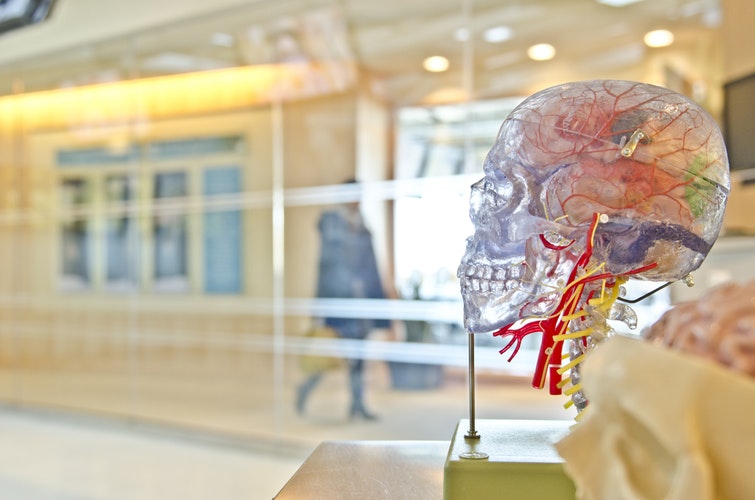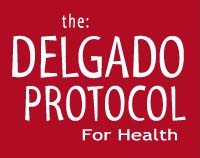How to Fully Recover from Untreatable Brain Injuries and Addictions
Addictions and Traumatic Brain Injuries are two debilitating conditions that negatively effect every aspect of the sufferer’s life. The go-to treatment methods provided by conventional doctors is medication and/or counselling; however, these methods rarely work because they fail to address the root cause of addictions and TBI symptoms. Fortunately, it is possible to treat both conditions safely and effectively, and restore the sufferer to their former self. Read-on to learn the root cause of TBI symptoms and addictions and how to permanently eradicate them.
Traumatic Brain Injury Basics
 Traumatic brain injury, or TBI, is the term used to describe damage to the brain caused by anything that aggressively shakes it, and it can occur even when there is no obvious direct impact to the head. Damage occurs because the brain, which floats in cerebral fluid and is encased in a bony shelf, gets pushed either forward or backwards from the jolting incident, and when it hits the shelf, it damages the part of the brain that is hit. If there is enough impact, the brain will then get pushed into the opposing side of the shelf, causing a condition called “coup-contracoup.” Both types of damage can lead to injury of the fine blood vessels, and inflammation throughout the entire brain.
Traumatic brain injury, or TBI, is the term used to describe damage to the brain caused by anything that aggressively shakes it, and it can occur even when there is no obvious direct impact to the head. Damage occurs because the brain, which floats in cerebral fluid and is encased in a bony shelf, gets pushed either forward or backwards from the jolting incident, and when it hits the shelf, it damages the part of the brain that is hit. If there is enough impact, the brain will then get pushed into the opposing side of the shelf, causing a condition called “coup-contracoup.” Both types of damage can lead to injury of the fine blood vessels, and inflammation throughout the entire brain.
The Cause of Long-Term TBI Symptoms
Overtime, the inflammation blocks the brains ability to make a range of hormones and neurosteroids (steroids that are made inside the brain), including testosterone, progesterone, growth hormone, pregnenolone, and allopregnanolone. These chemicals play an integral role in our personalities and cognitive capabilities and their disruption is what causes the classic symptoms of TBI, which often includes personality defects, cognitive impairment and treatment-resistant depression. Sometimes the symptoms of damage won’t show up until decades later, so many people do not connect their mood disorders or cognitive impairment to the incident.
TBI Versus Post Traumatic Stress Disorder (PTSD)
 Many people who experience TBI are wrongly diagnosed with Post Traumatic Stress Disorder (PTSD) because they produce many of the same symptoms, such as: depression, anxiety, irritability, aggression, trouble concentrating, self destructive behavior, memory problems, apathy, and insomnia. This is especially common among war veterans, who often experience brain damage without realizing it, due to high impact vibrations, or any bodily injury that could vibrate up to the brain. These patients are typically given packets of psychotropic medications (any drug capable of affecting the mind, emotions, and behavior), to suppress their symptoms. Not surprisingly, most of the medications fail to work. It’s thus important that if there is an injury at all that could cause the brain to shake, the patient should be treated for TBI first and foremost.
Many people who experience TBI are wrongly diagnosed with Post Traumatic Stress Disorder (PTSD) because they produce many of the same symptoms, such as: depression, anxiety, irritability, aggression, trouble concentrating, self destructive behavior, memory problems, apathy, and insomnia. This is especially common among war veterans, who often experience brain damage without realizing it, due to high impact vibrations, or any bodily injury that could vibrate up to the brain. These patients are typically given packets of psychotropic medications (any drug capable of affecting the mind, emotions, and behavior), to suppress their symptoms. Not surprisingly, most of the medications fail to work. It’s thus important that if there is an injury at all that could cause the brain to shake, the patient should be treated for TBI first and foremost.
Addiction and Brain Chemistry
Some addicts get lured into an addiction in a subconscious attempt to self-medicate and correct pre-existing hormone and neurosteroid imbalances. While others start out with balanced brain chemistry, but the addiction itself leads to a chemical imbalance, making the drug of choice progressively harder to give-up, as more time passes. Full recovery from an addiction will be extremely difficult, if not impossible, until the chemical imbalance is corrected.
Brain Chemicals Associated with Addiction
Pregnenolone is a neurosteroid that influences the receptors in the brain that make us susceptible to addiction, and a deficiency can cause anxiety and depression, both of which increase the propensity for addictive behavior. An addiction to pain killers is often caused by low pregnenolone, and/or a deficiency of testosterone, DHEA, and growth hormones, because a deficiency of any one of these chemicals can cause enduring pain. By replenishing these chemicals, many patients who are addicted to opiate painkillers, can get over the addiction, with little-to-no withdrawal symptoms.
Other chemical imbalance and addiction associations include:
Dopamine – Emerging research suggests low dopamine plays a contributory role in the onset of all addictions; and it is considered a major risk factor for cocaine and Ritalin abuse
Opioids – Depletion of natural opioids in the brain is connected to heroin and morphine abuse
Progesterone – Progesterone deficiency increases the risk for an addiction to cigarettes and opiate drugs
GABA – Low GABA increases the risk for alcoholism and an addiction to sedative/anti-anxiety drugs such as Benzodiazepines
Serotonin – Similar to dopamine, low serotonin increases the risk for all types of addiction; and studies show it plays an integral role in the development of alcoholism
Psychotropic Medications for TBI and Addiction
When TBI symptoms appear, conventional doctors will usually try to suppress the symptoms with psychotropic drugs. Addicts are also prescribed psychotropic drugs, which themselves can be addictive. Some of the most commonly prescribed medications for TBI victims and addicts include antidepressants, anti-psychotics, anti-anxiety pills, sleeping pills, mood stabilizers and pain killers. Unfortunately, it is rare for an addict or TBI patient to truly get better from these drugs because they fail to address the root cause – which is altered brain chemistry caused by hormonal imbalances.
The TBI and Addiction Solution
Fortunately, there is a safe and effective alternative to psychotropic drugs. A hormone or endocrinology specialist can administer lab tests to identify hormone, neurosteroid and neurotransmitter deficiencies. Once identified, the deficiencies can be replenished, with the use of biochemical hormones (hormones that are chemically identical to those found in the body). The appropriate bioidentical hormones will restore brain chemistry balance so that true healing can occur.
Complementary Solutions
Diet:
In addition to using biochemical hormones, a healthy lifestyle should also be undertaken for optimum TBI and addiction recovery. A wholefoods, plant-based diet with plenty of raw fruits and vegetables should be consumed. Animal products, oils, sugar, caffeine, alcohol and all processed and refined foods should be eliminated or vastly reduced. Try to eat every three hours, and combine complex carbs with either a healthy fat or protein source at every meal. This will help to stabilize blood sugar and energy levels, and to provide the brain and body with a steady source of fuel.
Exercise:
Exercise is also important. Studies show TBI patients who exercise are less anxious and depressed and have fewer physical, emotional and cognitive symptoms. Exercise also helps positively alter brain chemistry, releasing both dopamine and endorphins, which creates a natural high, making it particularly beneficial for addicts. Aerobic exercise is considered especially helpful for TBI patients and addicts, and you should aim for at least 5 hours per week. Strength training is important as well, because it can help regulate blood sugar and the sleep cycle, and you should try to include it at least 3 times per week. Finally, stretching and mind-body practices such as yoga and Tai Chi are helpful because they promote a mind-body balance.
Mental and Emotional Support:
Mental and emotional support is also essential for recovery, especially for addicts and TBI sufferers who also experienced a traumatic event. Neuro-linguistic programming (NLP), Timeline Therapy, Emotional freedom technique (EFT) and Hypnosis, are four great therapies for modulating subconscious feelings and thoughts and promoting recovery on a deep, emotional level. Deep breathing exercises, meditation, and creative projects can also be beneficial because they help to relieve stress and promote a balanced state of mind. Finally, the importance of deep emotional connections and touch cannot be overemphasized — they are both essential for any type of healing to occur.
*The above article is based on a youtube interview between Dr. Delgado and Dr. Gordon. To watch it in it’s entirety:
References:
https://www.ncbi.nlm.nih.gov/pmc/articles/PMC4065474/
https://www.ncbi.nlm.nih.gov/pmc/articles/PMC2851032/
http://www.brainline.org/content/2008/07/aerobic-exercise-following-tbi_pageall.html
http://www.upstate.edu/pmr/pdf/Ward.pdf
http://www.namihelps.org/assets/PDFs/fact-sheets/Medications/Commonly-Psyc-Medications.pdf
https://www.ncbi.nlm.nih.gov/pmc/articles/PMC3887339/
http://www.ibogaineuniversity.com/can-a-females-hormones-increase-the-risk-for-addiction/
http://www.projectknow.com/study-serotonin-can-increase-your-chances-of-addiction/





